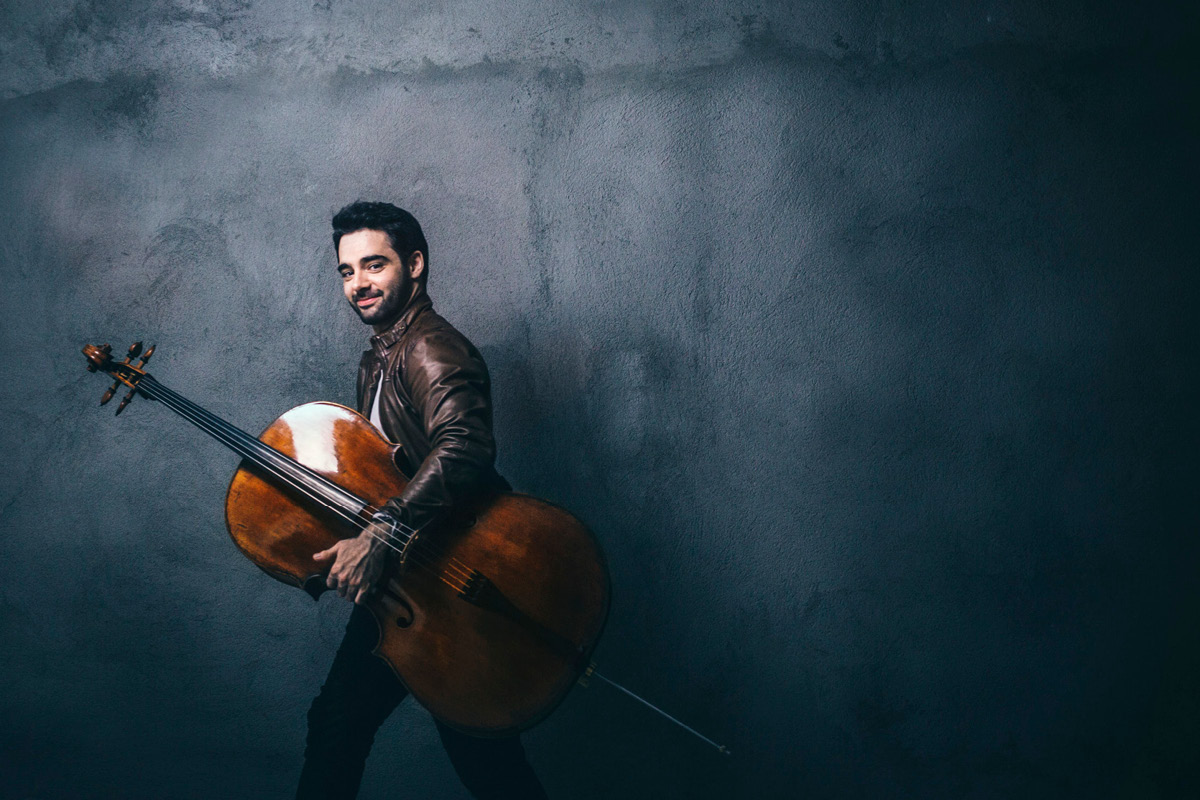Soulful Journeys was the fifth Maestro Concert of the Queensland Symphony Orchestra’s year and offered a wondrous palette of brooding soundscapes from two of the great masters of early impressionist music, Debussy and Dvořák. Subtle and delicate, the music overwhelmingly lulled the audience in the first half, while reaching a climatic and powerful conclusion in the second.
 Pablo Ferrández. Photo © Igor Studio
Pablo Ferrández. Photo © Igor Studio
Australian composer Lachlan Skipworth’s tone poem, Spiritus, opened the program. Both lyrical and melodic, the composition is for the most part delicately evocative of the dual alignments that inspired Skipworth – ‘breath’ and ‘breeze’ as well as ‘soul’ and ‘life.’ Beautiful images of light breezes and wind created by violins and harps had a shimmering, eerie quality, the additions of a lone trumpet, cor anglais and solo cello adding depth. Under Daniel Blendulf’s measured and precise baton with some first-rate orchestral playing, a beautiful melange of sounds emerged in a Nocturne evoking imagery of moonlight on water. Gentle percussion rhythms and a chiming celeste quickly gave way to a vision of stormy weather with pizzicato strings, followed by jarring snare drums. The many clashing, contrasting sounds seemed to include every orchestral instrument (strings, woodwind, brass and crashing cymbals) that was musically less engaging. A return to a soundscape of harp and glockenspiel, a gorgeous violin solo and the haunting celeste was welcome and concluded an impressive, if not totally successful, work.
Often described as the nearest thing to impressionism in musical terms, Debussy’s three Nocturnes are ravishingly beautiful allowing the colourful instrumental palette of the orchestra to be shown off to great effect. Blendulf demonstrated a clear understanding of this delicate musical style with sensitive legato and a passionate response to the music. His was an intelligent and considered reading with excellent intonation from the orchestra.
The gentle, languorous music of Nuages (clouds) spectacularly recreating the motion of clouds in the sky, brought out some fine work from the strings and horns. Blendulf’s pace was requisitely slow but never lugubrious. In contrast the brisk and cheerful Fêtes (Festivals) gave us bouncy strings while the theme confidently resided with the clarinets and cor anglais. Some fast rhythms from the brass led to an intense trumpet march with fierce playing from both strings and woodwind, morphing into a deafeningly still ending that was emotionally charged. The third work, Sirènes (Sirens), masterfully conveyed the sense of the ebb and flow of the tides, the rhythms of the sea including a passage of moonlight shimmering on waves. This seascape was visualised predominantly by shimmering strings. The wordless female voices from the Canticum Chamber Choir, representing the sirens, was most effective, the chorus interspersed around the instruments in the orchestra so that the ethereal sound had a sense of immersion under water. A stunning effect.
Dvořák’s Concerto in B minor for Cello and Orchestra, Op. 104 is widely regarded as the finest concerto written for the cello, with a demanding score for both orchestra and cello, and virtuosic playing required of the soloist. In Pablo Ferrández, a young Spanish cellist who returns to the QSO with an impressive list of credits to his name, we were treated to some exceptional and exciting playing from a true master of his instrument. Playing a beautiful 1696 Stradivarius with its rich, warm yet mellow tones, Ferrández imbued the Concerto with a natural charm, a polished technique and some quite astonishing and riveting playing. He worked hard to make each and every note perfect while ensuring that, through integrity and intelligence, the composer’s intent shone through. It was a magnificent performance that had the audience on its feet in rapturous applause which was rewarded with two encores, the latter a Bach partita which showed off the instrument’s agility in the Baroque repertoire.
Maestro Blendulf conducted confidently and with flashes of brilliance in the heroic first movement and subtle, measured control in the Adagio, letting everything fly furiously in the Finale. The orchestra and the solo instruments, particularly the French horn, flute and first violin, all played brilliantly, as did the brass and woodwind. At times there were some balance issues between orchestra and cellist, when the latter was drowned out by the orchestral accompaniment, but otherwise this was a marvellous rendition of Dvořák’s concerto, presented with love and passion.











Comments
Log in to join the conversation.